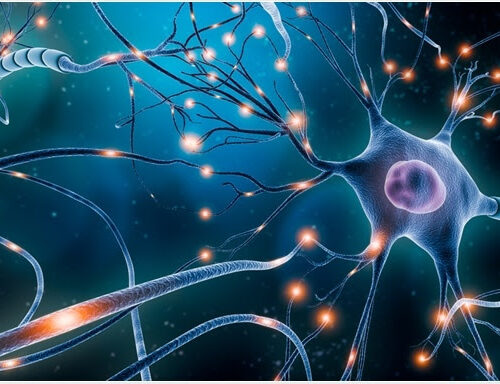TOKYO UNIVERSITY OF SCIENCE IMAGE: A TEAM OF SCIENTISTS FROM TUS HAS RECENTLY SHED LIGHT ON THE COMPLEX REGULATORY PATHWAYS OF CCL17/TARC CHEMOKINE, REVEALING INSIGHTS THAT COULD HELP US DESIGN NOVEL TREATMENTS FOR IMMUNE SYSTEM-RELATED DISEASES. CREDIT: HTTPS://PIXABAY.COM/USERS/CENCZI-1854246/ Allergies and many other types of immune system-related diseases originate from an interplay of complex chemical pathways that...
In Type 2 Diabetes, Arterial Stiffening Causes Increased Structural Damage to the Brain
Researchers here mine patient data in order to demonstrate that type 2 diabetes combines with the age-related stiffening of blood vessels to produce greater structural damage in the brain, leading to a more rapid cognitive decline. This correlation between stiffening and damage was not observed in non-diabetic patients. This is an interesting result, as a reasonable view of the...
Anxiodepressive disorders: much more than a matter of weight
Obese people run a higher-than-average risk of depression or anxiety, the result of a combination of factors: poor diet, lack of physical activity, and an accumulation of fat cells in their body called visceral adipocytes. However, obesity alone can’t cause anxious or depressive behaviours – far from it. In a new review published in Trends in...
AMPK Activator O304 as an Exercise Mimetic Drug
Most of the work aimed at treating aging as a medical condition is focused on stress response upregulation, finding ways to trigger some of the regulatory pathways and mechanisms involved in beneficial cellular reactions to the mild stresses of exercise, reduced calorie intake, hypoxia, heat, cold, and so forth. Improved cell behavior leads to improved tissue function, which...
Merck’s COVID pill loses its lustre: what that means for the pandemic
Max Kozlov Molnupiravir offers the possibility of treating people in areas where monoclonal antibodies cannot be easily administered.Credit: Mariusz Burcz/Alamy Molnupiravir, one of two antiviral pills that have caused excitement in the past few months because preliminary clinical-trial results showed that they can significantly reduce hospitalizations and deaths from COVID-19, has yet to receive an emergency use...
What is Balo’s Disease?
By Syed S. A.Reviewed by Emily Henderson, B.Sc. Balo’s disease, a rare variant of multiple sclerosis (MS), is a demyelinating disorder of the CNS in which the myelin (the fatty substance that covers nerve fibers) is destroyed. Balo’s disease is also known as concentric sclerosis or Balo concentric sclerosis because it is marked by bands of intact...
3D-printed medicine – the new technique uses a smartphone
Everyone has a somewhat unique body because we are all different humans. Also, our medical conditions are not always identical, regardless of the diagnosis. So how can we expect the same treatment to work equally effectively for everyone? Personalized medicines are a huge goal for medical science. But it is very difficult to achieve. Now...
Protein can save the heart after cancer
NORWEGIAN UNIVERSITY OF SCIENCE AND TECHNOLOGY Cancer treatment can be tough on the body, but for the patient to survive the cancer, it’s often necessary to go through with the treatment anyway. Some medications are effective against cancer, but one serious possible side effect is that they may trigger heart damage afterwards. There’s currently no...
People with HIV are at increased risk for heart failure
KAISER PERMANENTE OAKLAND, Calif. — People with HIV are at higher risk of developing heart failure than people without HIV, a new study found. The research, published December 13 in Mayo Clinic Proceedings, is one of the largest studies to investigate heart failure risk in people with HIV and how that risk varies by age, gender, race, and...
Adults with rare genetic causes of mental health disorders more likely to have chronic illness
GEISINGER HEALTH SYSTEM DANVILLE, Pa. – Adults with specific genetic causes of mental health and other brain disorders had significantly higher rates of chronic disease and twice as many annual emergency room visits when compared to a control group without these genetic conditions, a Geisinger study found. Rare genetic changes, known as pathogenic copy number variants...



